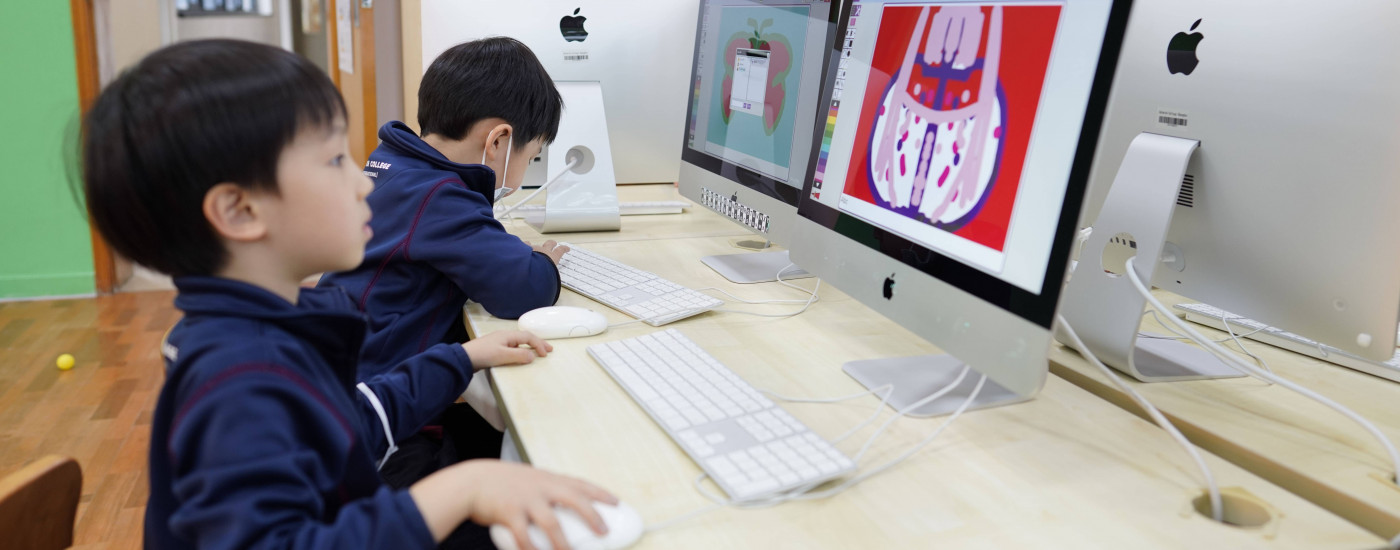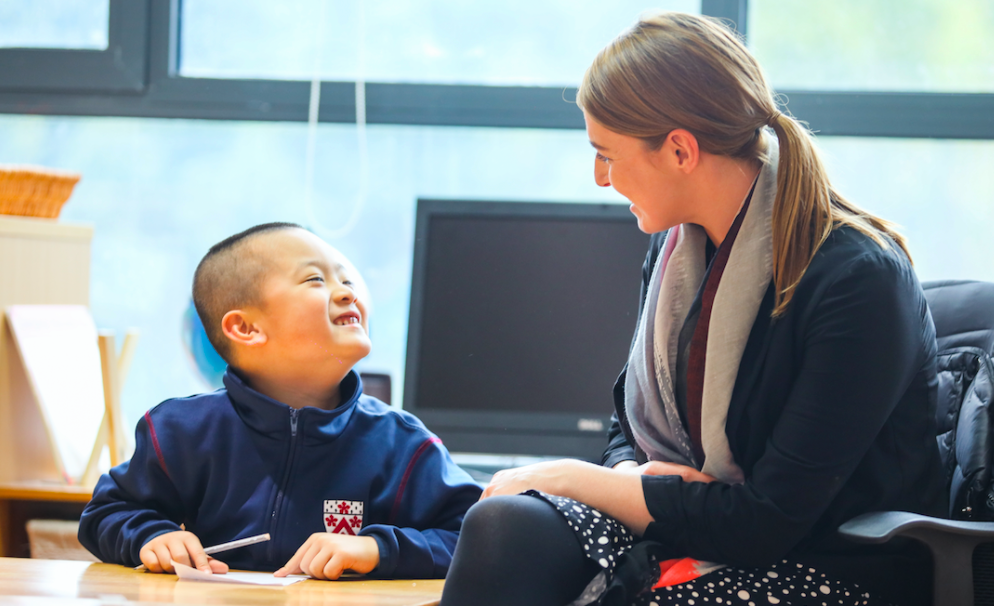- Home
- Dulwich Life
- Parent Support at Dulwich College Shanghai Kindergarten

E-learning for young children is quite a challenge as many do not have the language, maturity or skills needed to access learning via an electronic device. Therefore, e-learning for DUCKS children must be as interactive as possible; activities such as baking, creative artwork, dancing, yoga, nature walks, music, singing, etc.
Our aim is to cover as many areas of development as possible – physical, mathematical, language and communication, literacy, understanding of the world and expressive art and design. Social and emotional development is a huge developmental area in the early years and the one that is the most difficult to cater for within e-learning, which is why it is important for parents to continue family meals and events. We also provide a ‘Family Discussion of the Week’ question, such as ‘What if it rained chocolate and candy every day?’ to promote thinking skills, language development and most importantly, family interactions.

Some tips for home learning wellbeing for early years children:
- Make sure the learning environment is comfortable and a calm place without too many distractions.
- If you have several children, they may need separate areas to learn in.
- Make sure your child has plenty of breaks as they would at school, with regular healthy snacks and water.
- Because there will be some on-line activities for them to engage in, try to manage other screen time accordingly.
- Social interaction is an important aspect of your child’s development, therefore when they are not engaging in the home learning activities try to make time for them to enjoy play and social occasions with the family.
- Please engage with Physical Literacy activities to ensure they get plenty of exercise – you can join in too!
- Play is the work of children - This is a great opportunity to make the best use of any toys your child has, particularly construction equipment, creative activities, role play, puzzles, games, etc. Make lots of time for free play.
- Read, read and read – children love nothing better than sharing a book with an adult.
- Routines are important; where possible, try to maintain your daily routine as you would a normal school day. This will also help when they return to school. As part of this they should maintain the same sleep patterns and routines.
- Talk to your child about why they are not able to go to school. Answer their questions and reassure them that they will return to school soon.










